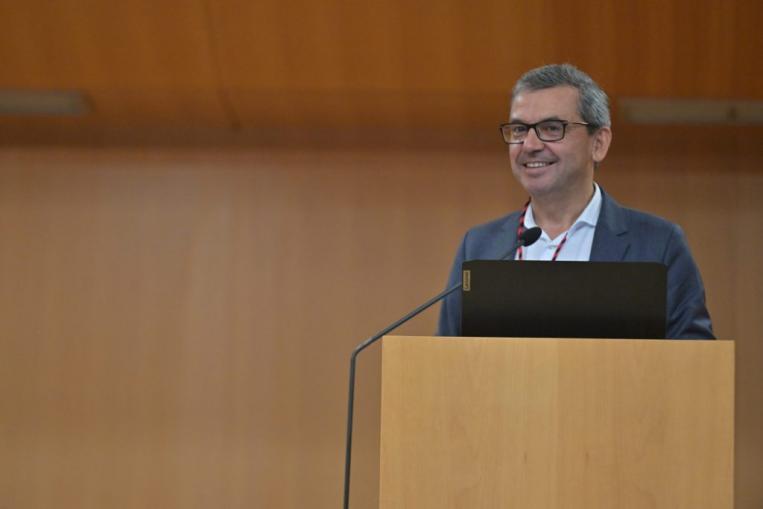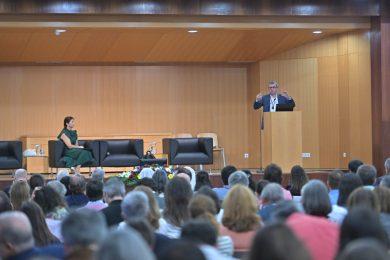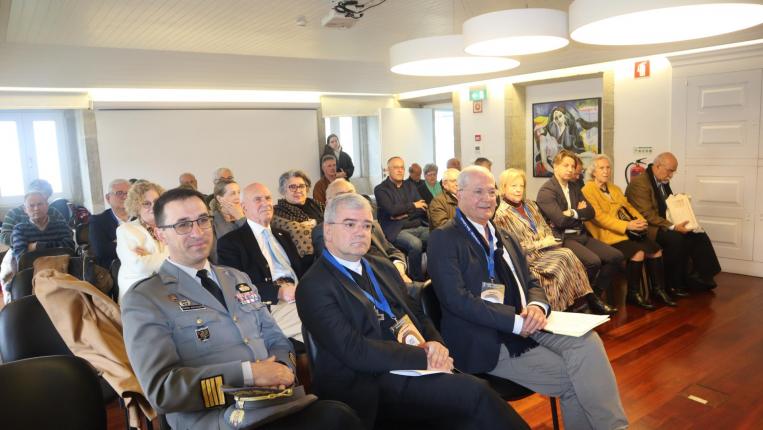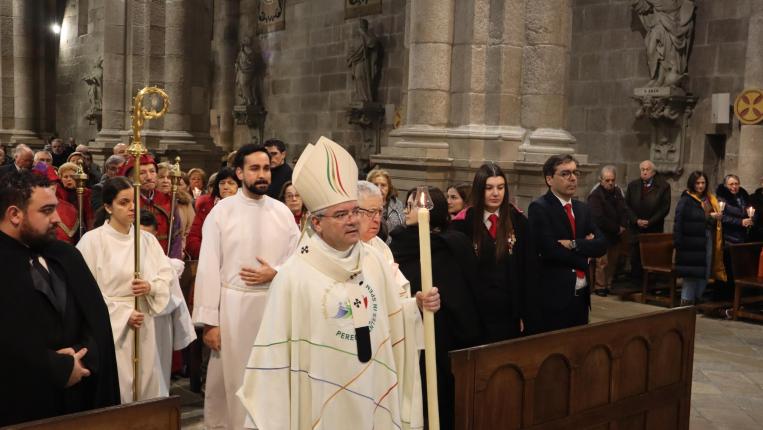Professor João Duque explained the concepts of ‘critical posthumanism and technological posthumanism’ at the 2nd National Catholic School Congress.

Fátima, 10 Oct 2024 (Ecclesia) - The pro-rector of the Portuguese Catholic University (UCP) said today that human beings will ‘always be left behind’ if they try to imitate Artificial Intelligence.
‘There are those who say that the main and most problematic impact of Artificial Intelligence on humans is to make humans try to imitate artificial intelligence, that will be the main danger,’ said João Duque in statements to the ECCLESIA Agency, after the conference “The human and the post-human” in which he spoke, at the II National Congress of the Catholic School, in Fatima.
‘We will always be left behind [if we try to be like artificial intelligence], certainly, and then we will lose other elements that we will no longer have as humans,’ he warned.
At the conference, the professor at UCP's Faculty of Theology explained the concepts of ‘critical posthumanism and technological posthumanism’, warning of a change towards an evolving paradigm shift.
‘Critical posthumanism criticises a certain form of humanism. This form of humanism is, above all, what is known as modern humanism, which is a humanism that places the human being at the centre of everything, as the subject of everything, the master of everything and, eventually, also the owner of everything. It's called radical anthropocentrism,’ he explained to Agenzia Ecclesia.
Transhumanism, in other words, technological posthumanism, explains the lecturer, ‘is all the current technological developments that are applicable to human beings,’ ultimately giving substance to the desire to be ‘a perfect species’.
‘We desire certain perfections and then we consider that technology will grant us these perfections, and it probably will, and we consider that, with this, we have in fact achieved what a human being should be,’ he emphasised.
‘But necessarily, in moving towards this type of human being, we abandon other characteristics of the human, which are typically human and which, from my perspective at least, are highly problematic if we abandon them,’ João Duque developed.

When asked how these trends play out in the educational environment, the UCP pro-rector emphasised that students ‘are not immune’ to the public discussion that is taking place.
Regarding the ethical problem of Artificial Intelligence, which ‘is a serious issue’, João Duque argues that it needs to be dealt with in philosophy and morality classes.
‘The other question has more to do with the profile of the human being, don't we often, in the educational project itself, create an image of the human being that is very similar to that modern image of the overbearing human being, of the proprietary human being?’ he asked.
‘And that's the big question: is it this human being that we have to invest in, or a human being who can live with their frailties in a healthy way?’ he said.
At the conference of the 2nd National Catholic School Congress, the speaker argued that teachers have to help students immerse themselves in human problems’, especially “students who live in a highly technologised world that is far removed from reality”.
The Portuguese Association of Catholic Schools (APEC) and the National Secretariat for Christian Education (SNEC) are promoting the 2nd National Catholic School Congress today and Friday at the Paulo VI Pastoral Centre in Fátima, with 350 participants.






